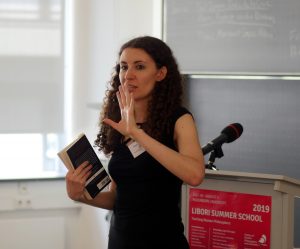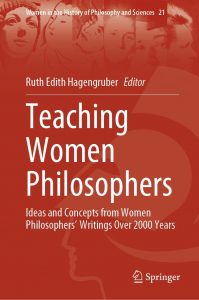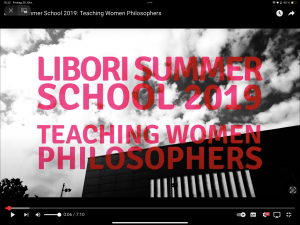
 Have you seen the new Springer volume “Teaching Women Philosophers”? In her chapter, Sarah Scott delves into the life and philosophy of Sor Juana Inés de la Cruz:
Have you seen the new Springer volume “Teaching Women Philosophers”? In her chapter, Sarah Scott delves into the life and philosophy of Sor Juana Inés de la Cruz:
I demonstrate ways of teaching Sor Juana Inés de la Cruz (1648/51–1695), who was famous for her sophisticated Baroque writing and being the most learned woman of her era in New Spain (Mexico). After giving an overview of her life, I present “Respuesta a Sor Filotea de la Cruz” (1691), a letter she wrote in response to being told to cease writing. This letter is believed to be the first published defense written in the western hemisphere of the rights of women to obtain an education, conduct study, and write philosophy. Next I present her philosophic poem, “Primero Sueño” (1685). Some of the main themes I explore are syncretism, the limitations of reason, intellectual virtues and the use of silence, and the relationship between rhetoric and philosophy. Besides presenting Sor Juana’s own ideas, I give suggestions for how she may be paired with Socrates’ Apology, Foucault on parrhesia, and Fricker on epistemic injustice.
Interested? You can find out more about Sarah’s contribution or the Springer book here.
Sarah Scott was also at the Center as part of the Libori Summer School 2019. The Summer School also focused on the topic „Teaching Women Philosophers“. The Center for the History of Women Philosophers and Scientists invited guests from all over the world to discuss women philosophers and their contributions to the history of philosophy. Established researchers and young scholars shared their expertise in a supporting and inspiring environment to find innovative ways to integrate women philosophers into the philosophical canon. Find more information about the Libori Summer School 2019 here:
You cannot copy content of this page










